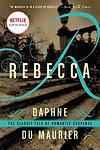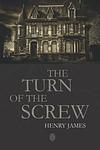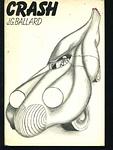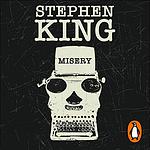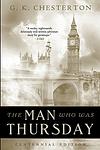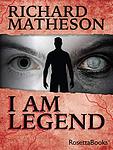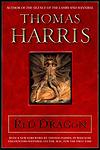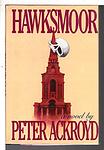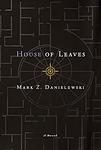The Greatest "Psychological, Speculative Fiction" Books of All Time
Click to learn how this list is calculated.
This list represents a comprehensive and trusted collection of the greatest books. Developed through a specialized algorithm, it brings together 300 'best of' book lists to form a definitive guide to the world's most acclaimed books. For those interested in how these books are chosen, additional details can be found on the rankings page.
Genres
The Psychological genre of books typically explores the inner workings of the human mind and emotions, often delving into complex and sometimes disturbing psychological states. These books may focus on mental illness, trauma, relationships, or personal growth, and often challenge readers to confront their own beliefs and perceptions. Psychological books may be suspenseful, thought-provoking, and emotionally intense, offering readers a deep and often unsettling glimpse into the human psyche.
Speculative fiction is an umbrella genre encompassing narrative fiction with supernatural or futuristic elements. This includes genres such as science fiction, fantasy, horror, supernatural fiction, superhero fiction, utopian and dystopian fiction, apocalyptic and post-apocalyptic fiction, and alternate history. The unifying factor of speculative fiction is its departure from the narrative constraints of reality, exploring imaginative and often profound questions that challenge our understanding of the world and our place within it. These stories often delve into themes like the human condition, social commentary, and the exploration of philosophical and ethical dilemmas through the lens of the fantastical or the yet-to-be-possible. By pushing the boundaries of the known, speculative fiction invites readers to consider the myriad possibilities of existence and the potential consequences of our actions in worlds that are, at once, vastly different from and eerily similar to our own.
Countries
Date Range
Reading Statistics
Click the button below to see how many of these books you've read!
Download
If you're interested in downloading this list as a CSV file for use in a spreadsheet application, you can easily do so by clicking the button below. Please note that to ensure a manageable file size and faster download, the CSV will include details for only the first 500 books.
Download-
1. Heart of Darkness by Joseph Conrad
This classic novel follows the journey of a seaman who travels up the Congo River into the African interior to meet a mysterious ivory trader. Throughout his journey, he encounters the harsh realities of imperialism, the brutal treatment of native Africans, and the depths of human cruelty and madness. The protagonist's journey into the 'heart of darkness' serves as both a physical exploration of the African continent and a metaphorical exploration into the depths of human nature.
-
2. Beloved by Toni Morrison
This novel tells the story of a former African-American slave woman who, after escaping to Ohio, is haunted by the ghost of her deceased daughter. The protagonist is forced to confront her repressed memories and the horrific realities of her past, including the desperate act she committed to protect her children from a life of slavery. The narrative is a poignant exploration of the physical, emotional, and psychological scars inflicted by the institution of slavery, and the struggle for identity and self-acceptance in its aftermath.
-
3. Frankenstein by Mary Shelley
This classic novel tells the story of a young scientist who creates a grotesque but sentient creature in an unorthodox scientific experiment. The scientist, horrified by his creation, abandons it, leading the creature to seek revenge. The novel explores themes of ambition, responsibility, guilt, and the potential consequences of playing God.
-
4. Lord of the Flies by William Golding
A group of British boys are stranded on an uninhabited island after their plane crashes during wartime. Initially, they attempt to establish order, creating rules and electing a leader. However, as time passes, their civility erodes, and they descend into savagery and chaos. The struggle for power intensifies, leading to violence and death. The novel explores themes of innocence, the inherent evil in mankind, and the thin veneer of civilization.
-
5. Rebecca by Daphne du Maurier
A young woman marries a wealthy widower and moves into his large English country house. She quickly realizes that the memory of her husband's first wife, Rebecca, haunts every corner of the estate. The housekeeper's obsessive devotion to Rebecca and the mysterious circumstances of her death continue to overshadow the second wife's attempts to make a happy life with her husband. As secrets about Rebecca's life and death are revealed, the new wife must grapple with her own identity and place within the household.
-
6. A Clockwork Orange by Anthony Burgess
This novel follows the life of a violent young man named Alex, who is part of a youth subculture in a dystopian future England. Alex and his gang engage in a nightmarish spree of rape, assault, and robbery, until he is arrested and subjected to a psychological experiment by the government to "cure" him of his violent tendencies. The novel explores themes of free will, morality, and the nature of evil, while using a unique slang language invented by the author.
-
7. The Turn of the Screw by Henry James
A young governess is hired to care for two children at a remote English estate. However, she soon becomes convinced that the grounds are haunted by two former employees who have taken control of the children. As she fights to free the children from these apparitions, the line between reality and her own fears becomes increasingly blurred, leading to a chilling and ambiguous conclusion.
-
8. The Haunting of Hill House by Shirley Jackson
The book is a chilling tale that revolves around a group of four individuals who decide to stay in a notoriously haunted mansion to conduct a paranormal investigation. The main character, a shy, reclusive woman with a troubled past, becomes increasingly unstable as she experiences terrifying phenomena and becomes obsessed with the house. As the supernatural events escalate, the lines between reality and imagination blur, leading to a shocking and tragic conclusion.
-
9. Berlin Alexanderplatz by Alfred Döblin
Set in 1920s Berlin, the book follows the life of Franz Biberkopf, a man recently released from prison who is trying to make an honest life for himself. However, he is drawn back into the criminal underworld due to circumstances and the influence of his acquaintance, Reinhold. The book is a vivid portrayal of city life in Weimar-era Germany, exploring themes of poverty, crime, redemption and the struggle to maintain one's morality amidst chaos and corruption.
-
10. American Psycho by Bret Easton Ellis
The novel is a disturbing and graphic exploration of the mind of a wealthy, young and handsome Wall Street investment banker who is also a psychopathic serial killer. He leads a double life, appearing to be a charming and sophisticated businessman by day, while indulging in horrific acts of violence and murder by night. The narrative provides a satirical critique of 1980s American consumer culture, vanity, and excess, while also delving into the dark underbelly of human nature.
-
11. Never Let Me Go by Kazuo Ishiguro
The novel is a haunting tale of three friends, who grow up together at a seemingly idyllic English boarding school. As they mature, they discover a dark secret about their school and the purpose of their existence, which is to become organ donors for the rest of society. The story is a profound exploration of what it means to be human, the morality of scientific innovation, and the heartbreaking reality of love and loss.
-
12. The Private Memoirs and Confessions of a Justified Sinner by James Hogg
Set in 18th century Scotland, the novel explores the psychological downfall of a deeply religious man who believes he is predestined for salvation and thus justified in committing a series of murders. He is driven to this path of self-destruction by a mysterious stranger who may be either a devilish tempter or a manifestation of his own deranged mind. The book serves as a critique of religious fanaticism and a chilling exploration of the dark side of human nature.
-
13. Crash: A Novel by J. G. Ballard
The novel revolves around a man who becomes sexually aroused by staging and participating in real car-crashes, a fetish that spirals further out of control when he meets a like-minded woman. It explores the disturbing intersection of technology, sexuality, and violence, pushing the boundaries of social norms and challenging the reader's perception of reality.
-
14. Flowers for Algernon by Daniel Keyes
The book is a poignant science fiction narrative that follows the life of Charlie Gordon, a man with an IQ of 68, who undergoes an experimental surgical procedure intended to increase his intelligence. The story is told through Charlie's progress reports, which initially showcase his limited comprehension and writing ability. As the treatment takes effect, Charlie's intelligence surpasses that of the average person, leading to a dramatic increase in his understanding of the world, relationships, and his own past. However, the transformation is not without its pitfalls, as Charlie grapples with the emotional and social implications of his newfound abilities, and the impermanence of the experiment's success becomes a haunting reality. The novel explores themes of intellect, human dignity, and the ethics of scientific experimentation.
-
15. The Island of Doctor Moreau by H. G. Wells
A shipwrecked man finds himself on an isolated island run by a mad scientist who has been conducting disturbing experiments, transforming animals into human-like beings through vivisection. The man must navigate this horrifying new reality while trying to maintain his own humanity and sanity, in a world where the line between beast and man is blurred. The narrative is a chilling exploration of the nature of humanity, the ethics of science, and the dangers of playing God.
-
16. Misery by Stephen King
A successful novelist is rescued from a car crash by a deranged fan who is upset with the death of her favorite character from his books. Trapped in her remote home, the writer is subjected to physical and psychological torture as the fan forces him to write a new novel bringing the character back to life. As he writes for his life, he must also plan his escape before his captor's rage becomes deadly.
-
17. The Wasp Factory: A Novel by Iain Banks
The novel is a dark and disturbing tale of a 16-year-old boy named Frank who lives on a secluded island with his eccentric father. Frank, who has killed three children in his past, spends his time engaging in violent rituals and maintaining his "Wasp Factory," a barbaric contraption he uses for divination. The narrative takes a turn when his older brother, who is institutionalized, escapes and heads home, leading to shocking revelations about their family's past and Frank's identity.
-
18. The Man Who Was Thursday by G. K. Chesterton
"The Man Who Was Thursday" is a metaphysical thriller that revolves around a poet turned detective who infiltrates a secret society of anarchists in London. Each member of the society is named after a day of the week, and the protagonist becomes 'Thursday.' As he delves deeper, he discovers that the other members are also undercover detectives, each unaware of the others' true identities. The narrative explores themes of order and chaos, faith and unbelief, with a surprising twist regarding the identity of the society's leader, 'Sunday.'
-
19. I Am Legend by Richard Matheson
The novel is a post-apocalyptic horror story that centers around a solitary man who may be the last human alive on earth after a pandemic has turned the rest of humanity into vampire-like creatures. He spends his days fortifying his home, hunting for food, and killing these creatures while they sleep. At night, he is tormented by their attempts to break into his home and kill him. His isolation drives him to the brink of insanity, and the novel explores themes of loneliness, survival, and the human capacity for hope in the face of utter despair.
-
20. Red Dragon by Thomas Harris
A former FBI profiler, who is renowned for capturing a notorious serial killer, is lured out of retirement to track down a new killer who has a taste for families. The new killer, dubbed "The Tooth Fairy", is a complex character with a troubled past that leads him to commit his heinous crimes. As the profiler delves deeper into the investigation, he is forced to confront his own demons and the manipulative games of the serial killer he previously captured, who is now behind bars.
-
21. Life & Times of Michael K by J M Coetzee
Set in South Africa during a civil war, the novel follows the journey of Michael K, a simple gardener with a cleft lip. When his mother falls ill, he attempts to take her back to her rural birthplace. After she dies en route, Michael continues the journey alone, struggling to survive in a war-torn landscape, while also being caught up in the bureaucratic red tape of the dystopian society. The story explores themes of freedom, survival, and the human spirit's resilience against adversity.
-
22. The Children of Men by P. D. James
Set in a dystopian future where mankind has become infertile, the novel centers on a history professor who becomes involved with a group of revolutionaries seeking to overthrow the oppressive government. As the world descends into chaos due to the impending extinction of the human race, a miraculous pregnancy offers a glimmer of hope. The professor must protect the pregnant woman and navigate the dangerous political landscape, while grappling with the implications of a world without children.
-
23. Hawksmoor by Peter Ackroyd
"Hawksmoor" is a novel that alternates between the 18th century and the 1980s, focusing on two characters both named Nicholas Dyer and Nicholas Hawksmoor. Dyer, an architect in the 18th century, constructs seven churches in London, each with a dark and sinister secret. In the 1980s, Hawksmoor, a detective, investigates a series of murders that occur in the same churches. The narrative explores themes of history, time, architecture, and supernatural elements, creating an eerie and atmospheric tale.
-
24. House of Leaves by Mark Z. Danielewski
The novel is a complex and multi-layered narrative that revolves around a young man who comes across a manuscript written by a blind man about a documentary that doesn't appear to exist. The documentary is about a family who moves into a house that is larger on the inside than it is on the outside, with shifting walls and hallways that lead to impossible spaces. The novel is known for its experimental layout, with some pages containing only a few words and others filled with footnotes, different fonts, and sideways text, reflecting the disorienting and labyrinthine nature of the house itself.
-
25. Story of the Eye by Georges Bataille
This novel is a provocative exploration of the dark side of human nature, featuring two teenage characters who engage in increasingly bizarre and violent sexual games. Their actions, driven by their obsession with eroticism and death, lead them into a world of perversion and madness. The narrative is filled with explicit sexual content and shocking imagery, reflecting the author's fascination with the transgressive and the taboo.
Reading Statistics
Click the button below to see how many of these books you've read!
Download
If you're interested in downloading this list as a CSV file for use in a spreadsheet application, you can easily do so by clicking the button below. Please note that to ensure a manageable file size and faster download, the CSV will include details for only the first 500 books.
Download



